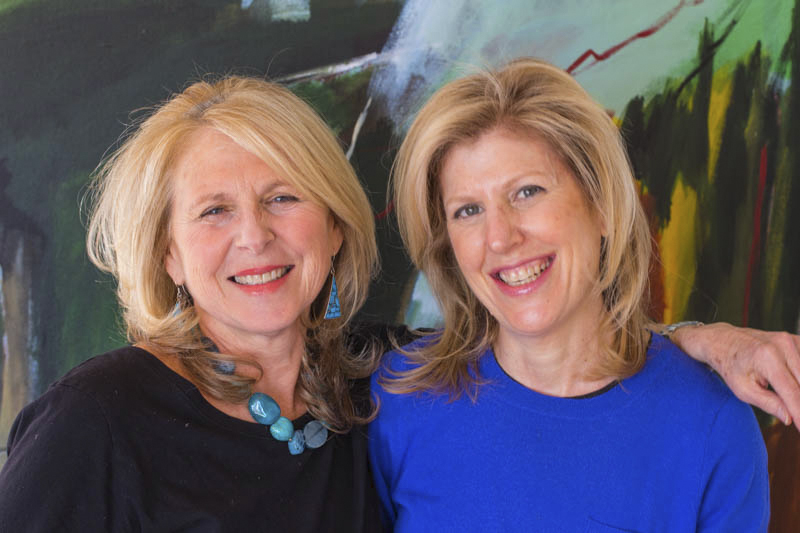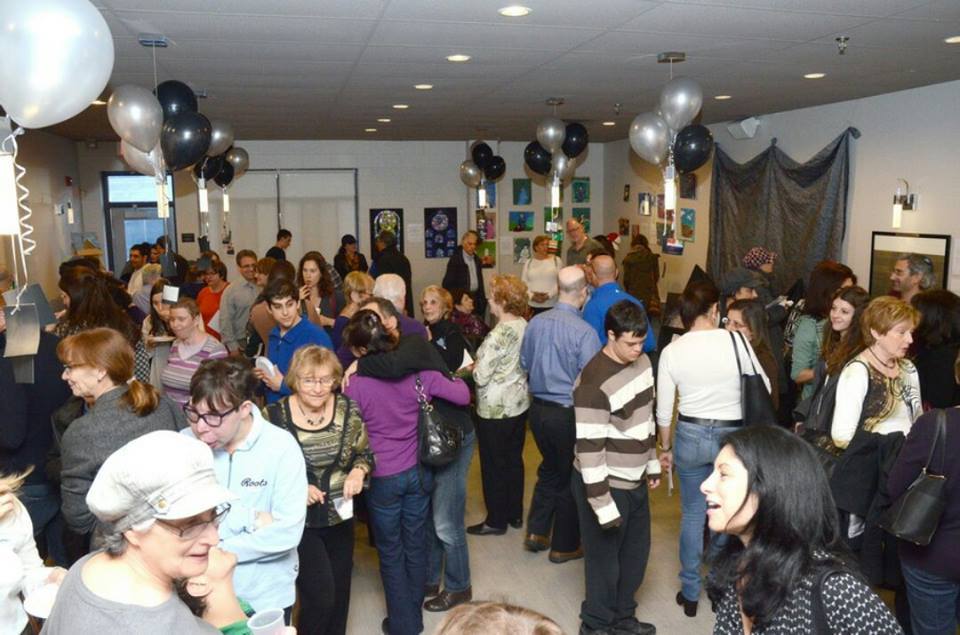MONTREAL – Parents of young adults with intellectual and other disabilities in the Jewish community say their children’s need for social connection is not being addressed.
“The weekends are the worst – what is there for them to do? Nothing,” said Harriet Sugar Miller, whose daughter Caroline, 22, yearns to get together with peers but has no place to go.
There are day programs during the week in Montreal, but very little structured activity for these young people outside of that time, somewhere they could enjoy being with others like themselves and feel part of the Jewish community.
Such programming is scant for anglophones and, apart from one night a week at the YM-YWHA, virtually non-existent in the Jewish community, Sugar Miller says.
READ: SPECIAL NEEDS STUDENTS GET READY TO WALK DOWN THE RUNWAY
The focus is on children with special needs, and Caroline’s Summit School was an excellent educational institution, her mother said, but students must leave at 21. For years, outside of school, Caroline enjoyed going to the Friendship Circle, a centre under Chabad auspices, that provides social and recreational activities, but now she is too old for that.
Sugar Miller and Helene Donath, mother of an adult son with special needs, are behind an effort to create some kind of ongoing social program specifically for those aged 18 to 35.
They call their nascent program Club ALink, and its motto is “building links of friendship among special young adults.”
They have the support of The Chevra synagogue (Chevra Kadisha B’nai Jacob), which this spring plans to launch a program on Sundays, its executive director Sid Milech confirmed.
On April 12, Club ALink, The Chevra and the Y will host a “community chat” on the topic “Young Adults With Special Needs: What’s Next?” at 7 p.m. at the MADA Community Centre, 6875 Décarie Blvd. The kosher food bank, under Chabad auspices, has been supportive of the project, providing space and volunteer opportunities.

This is a chance for families, those providing services and interested community leaders, as well as young adults themselves, to discuss what shape this project should take.
The guest speaker is disability inclusion consultant Shelly Christensen of Minneapolis, author of Jewish Community Guide to Inclusion of People With Disabilities and parent of an adult child with Asperger’s syndrome.
“Do you dream that your child will be happy and independent? Do you want to talk with others about how we can work together to build a community for our young adults?” reads the flyer for the event.
Club ALink is taking Toronto’s DANI (Developing and Nurturing Independence) as a possible model, Sugar Miller said. Founded in 2006, DANI is a not-for-profit organization started by parents of young adults with cognitive and/or physical disabilities.
READ: MONTREAL MUSEUM SHOWCASES YOUNG ARTIST WITH AUTISM
Today it is has its own large centre, and provides programming five days a week, as well as recreation on Sundays and winter and summer camping.
She and Donath want to hear ideas from all who have a stake in this issue and, find partners to work with.
One of her longer-term dreams, for example, is to create a café run by the young people, similar to some she has heard of in other places.
“We would like to create a central resource, not something piecemeal,” she said. Programming must also be tailored to the differing abilities and interests of participants, she believes.
Milech said The Chevra’s program will initially offer classes in shopping and cooking, and other life skills. Its Rabbi Asher Jacobson will provide Judaica content now and then. Outings to the Y for recreation are also planned. Saturday night may be added to the schedule next.
“The sky is the limit. We just have to start somewhere,” he said.
Milech, who directed the Y Country Camp for over 20 years, three summers ago introduced a four-day program at the camp for kids with special needs and their families, which has proven to be very popular.
“A mother said to me, ‘This was a bittersweet experience.’ I said, ‘Why bitter?’ and she said, ‘What do we do the other 361 days of the year?’”
He has since found this a common refrain when he asks a parent of a young adult what they are doing. The answer is commonly: “Not enough.”
Milech said The Chevra is looking to ultimately run a five-day-a-week program.
The congregation’s board of directors is fully behind the project, and some of the proceeds from this summer’s golf tournament will go toward the program, he added.
READ: HOUSING KEY FOR PEOPLE WITH DISABILITIES, PANEL AGREES
“New York, Los Angeles, Toronto and [other Jewish communities] all have something like this. Montreal is just a little behind,” he said.
Milech said one of his goals in his new job at The Chevra is to make it more inclusive. “It’s incumbent upon us to say, ‘You are part of the Jewish community, part of the family… Basically, in the end, we are strengthening the community.”
Club ALink (named in memory of Donath’s father Aaron Lieberman) has as part of its mission statement that “all people, including those with disabilities, have fundamental rights to inclusion in their community, as well as their greater society,” and adds that their inclusion enriches the community.
